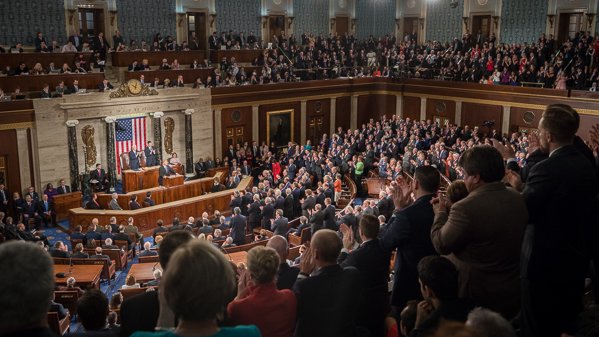
What follows is my best effort to list (in no particular order) the eleven biggest issues Washington ignores – issues Congress should be addressing, but hasn’t – and maybe never will despite what the Biden Adminisration might try to achieve.
Table of contents
- 1. The climate crisis
- 2. Public corruption
- 3. Military overreach
- 4. Secrecy in government
- 5. Overspending on healthcare
- 6. Mass incarceration
- 7. The culture of violence
- 8. Chemical pollution
- 9. A dysfunctional education system
- 10. A costly and dangerous food production system
- 11. Preparing to meet the next pandemic
Estimated reading time: 9 minutes
This post was updated on June 10, 2023.
1. The climate crisis
Rarely do political issues rise to the level of existential crisis. This one does. As Mark Hertsgaard illustrates in Hot through interviews with leading climate scientists, the scientific consensus about the impact of climate change has become more extreme with every new report – but has never caught up with the private projections of the most knowledgeable experts. And David Wallace-Wells has gone him one better in The Uninhabitable Earth: Life After Warming with updated information.
Absent dramatic policy shifts on a global scale, which are unthinkable without strong U.S. leadership, it’s possible that Planet Earth will eventually become unlivable for the human race. We’re already destroying a million species a year, and the erratically changing climate is compounding the problems caused by human encroachment on animal habitat. Meanwhile, the land available for farming is shrinking in the face of increasing urbanization, desertification, deforestation, and pollution. With or without human civilization, our global environment will be very different in the 22nd Century from what it is today – at a minimum, far less hospitable to homo sapiens.
2. Public corruption
The dominance of money in politics is the root cause of much that ails us. Massive campaign spending, combined with lavish lobbying efforts, is largely responsible for corporate welfare, our shockingly inequitable tax code, the dangerous bloating of the financial sector, and the corporate dominance of the news media. It’s also a major factor in the country’s continuing dependence on fossil fuels. Every one of these issues cries out for systemic change, but in a society where the U.S. Supreme Court’s outrageous Citizens United decision holds sway, it’s difficult to see how any meaningful change can be enacted.
The source of the problem lies deeper than policy, in the values that corporate money has sold to the public – at heart, the delusion that freedom means independence from government oversight, that society offers a level playing field to all comers, and that success can only be fairly rewarded if the winners take all. In The Self-Made Myth (reviewed here), Bryan Miller and Mike Lapham expose this value set for the illogical and self-serving approach that it is.
3. Military overreach
The United States spends $700 billion annually on what is characterized with Orwellian skill as “defense.” This amount is reportedly greater than the combined military expenditures of all the rest of the nations on Earth and is certainly larger than the total spent by all our potential adversaries combined. Much of this money could be so much more productively invested in advancing our true national security – upgrading our educational system, restoring our once-undisputed lead in science and technology, combating global poverty, and tending to our long-neglected public infrastructure. The late Chalmers Johnson’s Blowback series – Blowback, The Sorrows of Empire, and Nemesis – illuminate the extent of U.S. military overreach, and the steep price we pay for the dubious privilege of maintaining nearly 1,000 military bases around the world. We put Imperial Rome and the British Empire to shame.
4. Secrecy in government
Most of what we read about secrecy in our federal government concerns the “classified” documents such as those published by Wikileaks from time to time or the information turned up by investigative reporters, often after years of pursuing Freedom of Information Act (FOIA) lawsuits. Sadly, hiding mountains of written records behind a cloak of secrecy, reprehensible though it is, should be the least of our concerns.
Far more threatening to our liberties and our future as a democratic nation are the top-secret operations of the National Security Agency, the CIA, and the Special Forces – as well as numerous other activities carried out both at home and abroad in our name. Their work is all conducted under the veil of black budgets for agencies that have never seen the light of day or through seemingly innocuous contracts with private companies. The Washington Post’s Dana Priest and William M. Arkin did a spectacular job of reporting about this tragically overlooked phenomenon in Top Secret America: The Rise of the New American Security State.
5. Overspending on healthcare
The U.S. currently spends an unsustainable 17% of GDP on healthcare – about one-half more than the second-highest spender in the world (Switzerland, at 11%). Americans frequently brag that we have the finest healthcare system in the world, but that’s true only for those who can afford to pay enormous amounts of money for the most advanced care when a health emergency strikes. Ours is the world’s most expensive healthcare system, not the best.
Most of the rest of us would be far better off in France or some other industrialized country where government covers all costs and negotiates fair prices with pharmaceutical companies and other healthcare providers. And all the current talk about “reining in the deficit” is so much pointless chatter without two straightforward policy changes that could make a truly big difference: a drastic reduction in the Pentagon budget, of course, and adopting Medicare for All, otherwise hideously labeled “single-payer healthcare.”
6. Mass incarceration
One of my greatest disappointments with the Obama Administration was its continued prosecution of the so-called War on Drugs, the congeries of policies, police practices, and court decisions that has resulted in locking away more than two million Americans and subjecting our inner cities to a profoundly racist police regime. Michele Alexander’s landmark study, The New Jim Crow, lays bare the startling dimensions of these problems and their deeply rooted origins in the politics of the Nixon, Reagan, and Clinton administrations. That such policies could persist two generations after the Civil Rights Movement of the 1960s is abhorrent.
7. The culture of violence
In the wake of yet another horrific mass murder that takes the lives of so many innocents, public debate focuses on such “solutions” as banning assault rifles and reducing the number of bullets permitted in an ammunition clip. Even if such measures could be written into law, which is unlikely, they would be laughably ineffectual. More than 9,000 people die every year of gunshots in the U.S. – rarely from assault rifles. Collectively we possess an estimated three hundred million guns, most of them handguns, roughly one for every American. And anyone can easily buy more at 51,000 licensed retail firearms dealers (compared to 36,000 grocery stores). None of this should be a surprise in a society that glorifies violence in film, television, video games, and comic books and obsesses about football, one of the most violent of contact sports. It’s time for America to grow up!
8. Chemical pollution
Most of the 9,000 or more synthetic chemicals now used in everyday products in the U.S. were introduced after World War II. Hundreds of them leave residues in our bodies with largely unknown consequences. (Only seven percent of “high-production” chemicals have been fully tested for toxicity.) In other words, we have been carrying on a dangerous biology experiment with our lives and our children’s lives for more than two generations. What we do know is that health problems that were once unknown or rare are becoming common, including asthma, reproductive abnormalities in infants, many forms of cancer, and autism. A simple idea – the precautionary principle – could address many of these unwanted consequences by stipulating that the burden of proof about the safety of any product falls on its producer. Nearly half a century after Rachel Carson’s Silent Spring, isn’t it astonishing that we should still have to make this argument?
9. A dysfunctional education system
For decades, it’s been widely recognized that many high schools are simply warehousing young people to keep them off the job market. Now it’s beginning to seem as though that’s the case with so-called higher education as well at many colleges and universities. When employers (myself included) complain that some recent college graduates can’t write or spell and either can’t read or simply choose not to do so, you’ve got to figure there’s some truth to these observations – and that there’s something fundamentally wrong with the way our country educates its youth.
Whether the root cause is that schools teach the wrong things, that they teach in the wrong ways, or that the wrong people are doing the teaching is impossible to tell. But clearly the truth lies in some combination of these notions – dramatically compounded by our society’s failure to invest enough money to do the job right. Taking into account the number of hours that American teachers work, they’re paid far less than teachers in almost any other industrialized country. Shame on us!
10. A costly and dangerous food production system
An occasional outbreak of e coli infections or a newsmagazine exposé on the indiscriminate use of antibiotics in farm animals reminds us that all is not well with the way we Americans produce and procure our food. However, truth to tell, the scale and extent of the problem is far bigger than most of us understand.
Ninety-nine percent of the meat we eat is produced in ways that are inhumane, ecologically unsound, and dangerous to our health. The world’s unrelenting hunger for meat is responsible for producing more greenhouse gases than all modes of transportation combined and is thus one of the single most significant factors in global warming. Pollution from factory farms is poisoning the water table in agricultural areas throughout the United States, and the dramatic overuse of antibiotics in farm animals that aren’t sick is exposing us all to ever more deadly antibiotic-resistant diseases. Jonathan Safran Foer’s book, Eating Animals, exposes these and other truths about our food production system.
11. Preparing to meet the next pandemic
If we have learned anything from the COVID-19 pandemic that even now is ending lives and upending social systems around the world, it’s that in our independent civilization we are all vulnerable to the emergence of transmissible disease. A century ago, H1N1 influenza killed between fifty and 100 million people. COVID-19 has been less lethal. But the next pandemic may be as bad or worse than the flu that went epidemic in 1918-20. And even in the United States, where our public health system is far better than those in most other countries, we are sadly unequipped to confront it.
If any of the above leads you to believe that I think the United States is in worse shape than other countries, you might consider the neglected issues I’d identify, say, in Bangladesh or Tanzania. If you don’t know from direct observation, take my word for it: they’re in far worse shape than we are. Even after four years of a dysfunctional, narcissistic, compulsive liar in the Oval Office and a deeply divided Congress.
You can always find my most popular reviews, and the most recent ones, plus a guide to this whole site, on the Home Page.

























